Latest News From Health Monitoring
Keeping you up to date on recent initiatives, software enhancements, and the national conversation about public health
Keeping you up to date on recent initiatives, software enhancements, and the national conversation about public health
Each week, the CDC publishes an influenza summary update and as public health professionals already know, this year’s flu season has started strong and early. This year’s flu season got the earliest start since the “moderately severe” season of 2003, according to WebMD Health News.
So far, flu-like illnesses have been reported as “widespread” in Alabama, Louisiana, Mississippi, Tennessee, and Texas. And WebMD’s cold and flu map is showing additional “severe” flu activity in Georgia, South Carolina, and South Dakota.
EpiCenter’s data is showing a similar uptick in national flu-related ER visits. From October through mid-December, fever-related ER visits have increased nearly threefold—while respiratory-related ER visits have slightly increased.
The CDC estimates that 112 million Americans have already received flu shots this season—meaning 37% of the eligible population endured the needle or nasal spray. HMS will keep tabs on the flu data that EpiCenter collects and continue to post updates to provide public health professionals with additional information on this year’s flu season.
HMS is currently working toward receiving Modular Certification (Public Health Surveillance) for its Mergence platform. The key to this certification is the utilization of HMS’ Mergence data integration engine. Mergence is a service provided to a medical facility—and has been fine-tuned by HMS to meet client needs. This will assist hospitals in achieving Meaningful […]
It’s not often that storms as large as Sandy impact our county—and the effects that it had on public health are still being calculated. HMS reviewed data related to the storm and observed the following data trends in New Jersey: • Total emergency room registrations were notably reduced statewide on October 29th, the […]
A recent article on Nextgov states that The Department of Homeland Security has hired Accenture to “test technology that mines open social networks for indications of pandemics.” The biosurveillance program, slated to last one year, will attempt to identify public health trends by examining information that people share online. The total price tag is $3 […]
HMS is currently working toward receiving Modular Certification (Public Health Surveillance) for its Mergence platform. This will assist hospitals in achieving Meaningful Use Compliance—without requiring facilities to change their current EpiCenter or EpiStart data feeds.
The key to this certification is the utilization of HMS’ Mergence data integration engine. Mergence, which is a service provided to a medical facility, was the first open source integration engine to work with HL7 and general XML data types. While the first generation of Mergence was open source, today’s Mergence has been fine-tuned to meet our clients’ needs. Mergence is suitable to a variety of tasks that HL7 integration engines simply cannot accomplish. Data from Mergence is sent in certified, secure format to HMS’ EpiCenter system.
HMS will be able to route incoming data feeds through the Mergence engine which will then output a data stream, in the HL7 format required by MU2, and onto EpiCenter or EpiStart, thereby meeting the MU2 requirements, and implementation specifications, related to the submission of Syndromic Surveillance data to public health departments.
“Providing this service affirms our commitment to customer service,” states Kevin Hutchison, HMS President and CEO. “It ensures that current—and future—users of the system continue to gain valuable insight and support regarding important issues that impact public health.”
This year’s ISDS Conference kicks off December 4 in San Diego, CA. HMS is an event sponsor and we’ll be on hand to talk about syndromic surveillance, community health surveillance, and our products—EpiCenter and EpiStart.
The 2012 conference features industry professionals including Keynotes James H. Fowler, a professor at University of California, San Diego and Bill Davenhall, global marketing manager for health and human services at ESRI, Inc.
We hope to see you there. Check back to read some of our thoughts on the conference.
Our mission: Provide services that focus healthcare resources on existing and emergent threats to community health.
Our customers: State and local public health departments and health systems. We currently serve Connecticut, New Jersey, Pennsylvania, Ohio, Wyoming, and several counties in California, covering a total of more than 40 million people.
What we do: Monitor real-time health-related data for community health indicators. We collect data from nearly 600 hospitals and 3,600 ambulatory systems.
Support email:
support@health-monitoring.com
Emergency support: 1 (844) 231-5776
Additional guidance:
EpiCenter User Manual
700 River Ave., Suite 130
Pittsburgh, PA 15212
Corporate office: 1 (412) 231-2020
General calls: 1 (844) 231-5774
Emergency support: 1 (844) 231-5776

